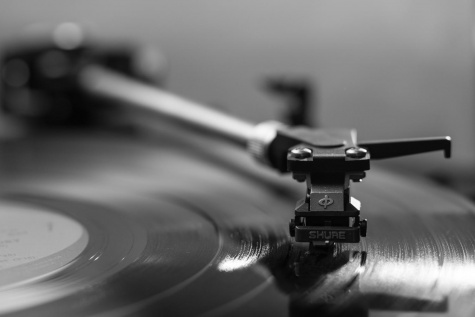
Seth Hahn | Writer
February 26, 2021
Listening to popular music has become a daily routine for most people in our modern society. But what actually makes a song popular? Is it the melody? The structure? The singer? The audience? Or maybe just luck?
“It needs to sound good,” junior Adam Brower said. And this is probably one of the first explanations that emerge; however, plenty of songs “sound good” to some people while simultaneously being unappealing to others. Take the rap genre—not everyone likes rap, and yet it is popular.
“Good music generally becomes popular, and good music consists of a catchy melody and it’s typically something that people can’t easily forget about,“ junior Cassandra Pintle said. “I feel like if there’s a rhythm, you can’t get out of your head, it’s most likely popular.” Essentially, if a song has good-sounding parts, it is going to be popular.
But to me, this isn’t enough to answer it.
“There are many different aspects that make popular music. For example, lyrics that the audience can relate to, or that evoke a strong response are a huge part of a [popular] song,” junior Ava Schmitt said. Most music that gets popular correlates to an emotion people latch onto, and this connection helps draw the people to it. Usually, many of these connections can be created through lyrics.

An interesting idea is how songs can now become popular through different genres. “I only listen to video game soundtracks.” junior Cameron Trunec said. Relationships like this, between the popularization of a song through its connection with some well-known form of media, seem to be the cause for many of the ‘top’ songs.
“One song that goes viral on TikTok could be listened to by millions, instantly making it popular,” Schmitt said. Exposure like this, especially when connected to visuals, is extremely important to making songs popular. It makes it more relatable to the listener.
The evolution of marketing music and the making of music popular is amazing. Songs have become ‘radio hits’ in many different ways, and recently the number of opportunities for a song to reach the masses has dramatically increased. We went from only wealthy having their own musical composers, to a radio where everyone can listen in, to what we have now: a mix of social platforms and applications that let us listen to music anywhere in the world. The concept of music has forever spoken to people, and with such extensive listening abilities, the bond between humans and lyrical composures will only strengthen.

Leave a Reply